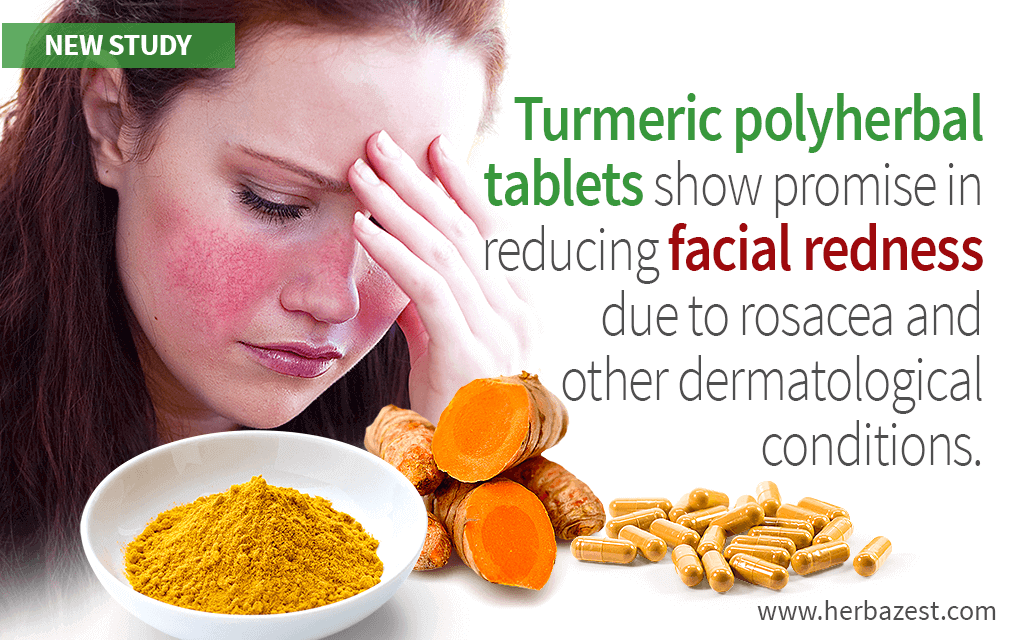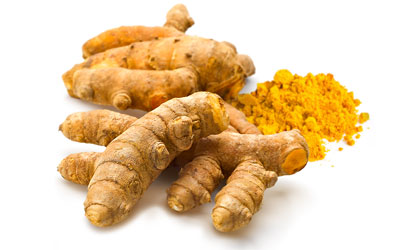Because the face is a body part people are the most conscious about, when they are stricken with facial erythema, or redness, it can put significant burden on their confidence and quality of life. While redness on the face is most commonly caused by conditions like rosacea, it cause also be a result of photo damage.1 Unfortunately, approved treatments are scarce, come with side effects, and often prove ineffective.
Thanks to its wound-healing and anti-inflammatory compounds, turmeric has been traditionally used for thousands of years for various conditions, including skin health. Many of these acclaimed folk uses have also been proven by scientific studies.2,3,4 To further explore the herb's extent of action on the skin, this clinical trial attempted to investigate the effects of turmeric on facial redness.
The Study
This double-blind, randomized pilot study was conducted at the dermatology clinic at the University of California, Davis (USA). It consisted of 28 healthy participants aged 25 to 60 randomly assigned to three groups receiving either placebo tablets, turmeric tablets, or turmeric-containing polyherbal tablets twice daily for four weeks.
Facial redness was assessed before and at the completion of the study via clinical grading and image-based analysis.
The Results
Researchers have observed a 40% decrease in facial redness solely in participants on turmeric-containing polyherbal tablets over the span of four weeks. No significant improvements of placebo or pure turmeric on facial redness were recorded.
What Does this Mean?
The results of this study indicate that the use of turmeric for rosacea on its own may not be sufficient to relieve facial erythema. It is possible that its skin-nurturing effects are strengthened or better expressed in combination with other herbs.
However, further research is needed to investigate individual effects of various herbs contained in the polyherbal tablet on facial redness, giving hope to people looking for a natural and safe treatment for their condition.
Other herbs with anti-inflammatory and antioxidant effects on the skin include oats, tea tree, and lavender.
Sources
- Journal of Integrative Medicine, Dietary supplementation with turmeric polyherbal formulation decrease facial redness: a randomized double-blind controlled pilot study, 2019
Footnotes:
- American Academy of Dermatology. (n.d.). 10 Reasons your Face is Red. Retrieved November 6, 2019 from https://www.aad.org/skin-care-secrets/facial-redness
- Current Science. (2014). Turmeric and curcumin: Biological actions and medicinal applications. Retrieved November 6, 2019 from http://repository.ias.ac.in/5196/1/306.pdf
- Journal of drugs in dermatology. (2013). Curcumin: a novel treatment for skin-related disorders. Retrieved November 6, 2019 from https://www.ncbi.nlm.nih.gov/pubmed/24085048
- Phytotherapy research. (2016). Effects of Turmeric (Curcuma longa) on Skin Health: A Systematic review of the Clinical Evidence. Retrieved November 6, 2019 from https://www.ncbi.nlm.nih.gov/pubmed/2721382





